A special screening of past 48 Hour Challenge winnersThursday 16 November 2017by BRENNAN BACKSA highlight of Southampton Film Week over the years has been the 48 Hour Film Challenge set up by Southampton network and productions group Exposure Filmmakers. Regrettably, the competition did not take place this year yet there was still the opportunity to watch recent examples. Over the space of an hour, 17 short films played back to back, varying in duration, genre and style.
Most impressive is how each contestant takes the competition guidelines and interprets them to fit an idea. Each year, the participants are given a set of rules to follow. A terrific example of ingenuity is THE BEAR NECESSITY (directed by Harry Gadsby, written by Michael Jones and Ashton Church). It tells the story of a man who, to help his friend through depression, dresses in a bear onesie. The mockumentary style allows for the film to provide a brilliant twist and subsequently create a fantastic comedy. HOW I ATE YOUR MOTHER (written and directed by James Atkins) employed a dystopian future to spectacular effect, turning the zombie apocalypse film on its head. The set-up is superb and the execution perfectly timed. These two examples highlight the imagination and creativity enabled by this challenge. James Atkins and writer Michael Jones were present for a Q&A after the screening. Jones commended the challenge for promoting imagination and encouraging productivity. For Atkins, the promise of a “challenge” is exactly why he took part and his passion for the craft was clearly evident in the discussion. The Exposure Challenge is clearly valued, bringing together a mixture of people - experienced and not so experienced - who create superb films in a very short space of time. Hopefully 2018 will see the challenge make its return.
1 Comment
This year's BAFTA nominated short films inspire and delight.Wednesday 15 November 2017by BRENNAN BACKSThe level of quality on show in this year’s BAFTA Shorts Tour is simply inspiring. Of course, from BAFTA nominated shorts you would expect nothing less. Yet the sheer breadth of material makes the viewing experience incredibly profound. From documentary to drama to animation, each genre has its place and seemingly stands its ground, although some stand out more than others in offering their unique take on what a short film can achieve.
STANDBY (directed by Charlotte Regan) offers a simple yet effective take on the buddy cop comedy. Although by no means technically sophisticated - it is filmed via a static dashboard cam - it is the relationship between patrol officers Gary (Andrew Paul) and Jenny (Alexa Morden), built up in 5 minutes, that takes us on such a humorous and bittersweet journey. The brilliant stop motion animation, A LOVE STORY (directed by Anushka Kishani Naanayakkara) is wonderfully weird and the emotional connection you make to two balls of yarn will make you question what you are watching. It is a strong example of meticulously hand-crafted stop motion animation but uses a simple story to evoke an affecting response. The other six short films are each fascinating in their own right, tackling subject matters ranging from the IRA, to the 1960s Chinese Cultural Revolution, and the “Mouth of Hell” in India. All the filmmakers have created a piece worthy of being displayed all over the world, some to make a political statement, some purely for enjoyment. All are likely to inspire the next generation of filmmakers. Dylan Mohan Gray's powerful and important documentary about the business behind the global AIDS crisis.Tuesday 14 November 2017by BRENNAN BACKSFIRE IN THE BLOOD (Dylan Mohan Gray 2013, narrated by William Hurt) explores the faults in our society and the dominance money holds over the human race. In flashes, through the actions of a select view individuals, it holds out for hope yet this hope is quickly distinguished and replaced with more societal defects.
Gray expertly weaves personal, professional and activists stories in and around a narrative highlighting corruption and deceit in the pharmaceutical trade. Importantly, the documentary presents stories from across the world, painting a picture to show how the powers that be ruin lives. The documentary constantly reiterates the detrimental effect the pricing of life saving AIDS drugs had on impoverished countries. The AIDS epidemic is revealed as something that could have been handled more effectively and millions of lives could have been saved. Instead, the greed of the big corporations meant over 10 million Africans lost their lives to AIDS and countless more around the world needlessly died. While the documentary shows how impoverished countries fought back, bringing reasonably priced, life-saving AIDS medicine to the market, the intention is not to spin this into a positive story. It presents a cry for help, one that forces us to open our eyes and see the bigger picture. We live in a world where Zackie Achmat, a HIV activist and one of the documentary’s many interviewees, has exclaimed: “the only reason we are dying is because we are poor”. It is a shameful truth that this film highlights so eloquently. Short film screening and filmmaker Q&A Monday 13 November 2017by EAMMON JACOBSFour short dystopian films were screened on Monday as part of Southampton Film Week's 2017 programme and the audience were treated to a Q&A session with the filmmakers. MEDICAE (2017, 14 minutes)Written and directed by Leo Rand, co-directed by Will Whiting MEDICAE sees an interrogation between a violent religious order and a man who carries a piece of nature that may hold the key to our next evolutionary step. Protagonist Noam (Charles Streeter) is written with messianic undertones, while nature itself is clearly compared to the Garden of Eden. In the Q&A, writer, director and actor Leo Rand referred to Alfonso Cuarón’s dystopian drama CHILDREN OF MEN (2006) as a huge influence on his short film. Like the rest of the films screened, MEDICAE shows lavish effects are not needed to create a bleak and hostile world and there is power in its bittersweet ending. Watch the teaser here. LOSING FACE (2016, 5 minutes)Written and directed by Rachel Stephens A woman enters a pub looking for her friends but instead finds the patrons inside to be faceless and intimidating. Coming to terms with a past trauma and moving forward play into this short tale of self-discovery. The transition in the opening minute from colour to black and white is a clever way of depicting unfamiliarity and a loss of self. The faceless punters are silently terrifying and prove incredibly effective in unnerving the audience. Watch the teaser trailer here. TOO LATE TO LEAVE (2015, 5 minutes)Written, shot and directed by Riyadh Haque Created as part of the Sci-Fi London 48 Hour Film Challenge and shortlisted for SFW: Shorts, TOO LATE TO LEAVE utilises next to no dialogue but nonetheless immerses the audience into a world so carefully pieced together. In the Q&A, Riyadh Haque detailed that he wanted the audience to find their own answers to the story. With clues as to what has happened carefully placed throughout, the narrative world is plunged into chaos. Like any good road movie, TOO LATE TO LEAVE reminds us life is often about the journey rather than the destination. Watch the film here. TRANSMISSION (2017, 17 minutes)Written and directed by Varun Raman and Tom Hancock
TRANSMISSION is David Lynch meets Stanley Kubrick. Or, at least that is who creators Varun Raman and Tom Hancock were clearly influenced by. TRANSMISSION portrays a world not so far from our own, where a terrifyingly charismatic interrogator (James Hyland) manipulates a young man (Michael Shon) to the point of desperation. As the filmmakers themselves describe it, the film is all about “the conflict between the oppressor and the oppressed”. This is clearly evident in the mental conditioning of the protagonist and the abstract surrealism that follows. Watch the trailer here. SFW screening of Buster Keaton's silent classic, with organ accompanimentSunday 12 November 2017by JORDAN THOMASSet in the striking Guildhall, cinema revellers of all ages were whisked away to the silent era thanks to the work of Silver Street Films and Southampton Film Week with their presentation of Buster Keaton’s silent comedy THE CAMERAMAN (Edward Sedgwick and Buster Keaton 1928). As one of the most familiar faces of the silent screen, it is fitting that Keaton should be awarded the prestigious honour of representing pre-talkie cinema at the festival. With an improvised accompaniment provided by Donald MacKenzie - a veteran concert organist approaching 25 years of silent film support - this was a recipe for cinematic success.
Before the film began, MacKenzie treated the audience to a medley of familiar film tunes and old organ classics. He also explained how silent film accompaniment works, showing off the range of sounds the Compton Organ is capable of as well as stressing the importance of occasional silence to let the film speak for itself. As the lights dimmed and MacKenzie played the familiar Universal Pictures intro, it was clear that the next hour would be a wordless delight. THE CAMERAMAN is a comedy of errors in which clumsy portrait photographer Buster (Keaton) falls for MGM secretary Sally (Marceline Day). In an attempt to woo her, Buster sets out to film New York’s most important news. MacKenzie expertly navigated every shift in tone, enhancing an already enjoyable cinematic experience. The 4000 pipes of the Compton Organ breathed additional life into all of Buster’s endearing blunders. Post-production Day with Mags Arnold, Mick Audsley, Caroline Bleakley, Eddie Hamilton, Zane Hayward, Eddy Joseph, Andy Morrison, Richard Morrison, Mark Sanger and John WilsonThursday 9 November 2017by BRENNAN BACKS and EAMMON JACOBS Last week, SolentPost brought several Hollywood filmmakers to Southampton Solent University to speak to students and the public about their vital roles in post-production and how they honed their craft. The group of creatives boast work on titles such as: MURDER ON THE ORIENT EXPRESS (2017), KINGSMAN: THE GOLDEN CIRCLE (2017), GRAVITY (2013), KICK-ASS (2010), HARRY POTTER AND THE PHILOSOPHER’S STONE (2001) and BILLY ELLIOT (2000), which have seen them work alongside high profile directors such as Terry Gilliam, Matthew Vaughn, Tim Burton and Edgar Wright. Across four panels, they discussed their work, how they broke into the industry, provided interesting film facts and even presented footage not seen before by the public. Film Openings and Titles |
Archives
December 2019
Categories
All
|

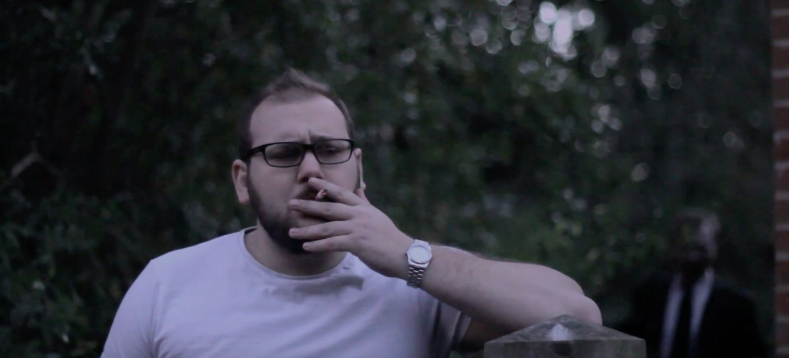
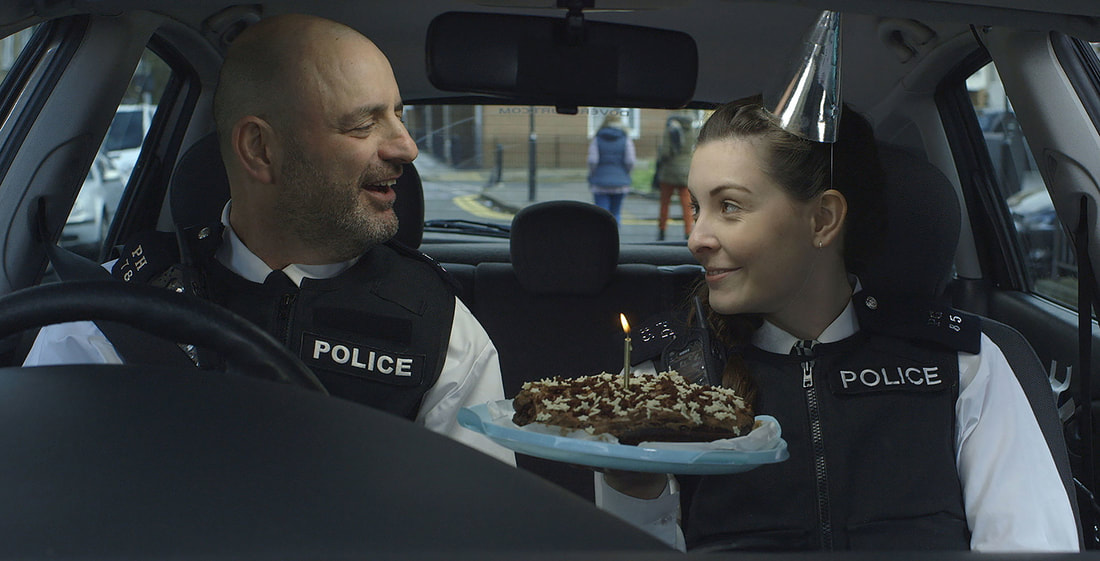

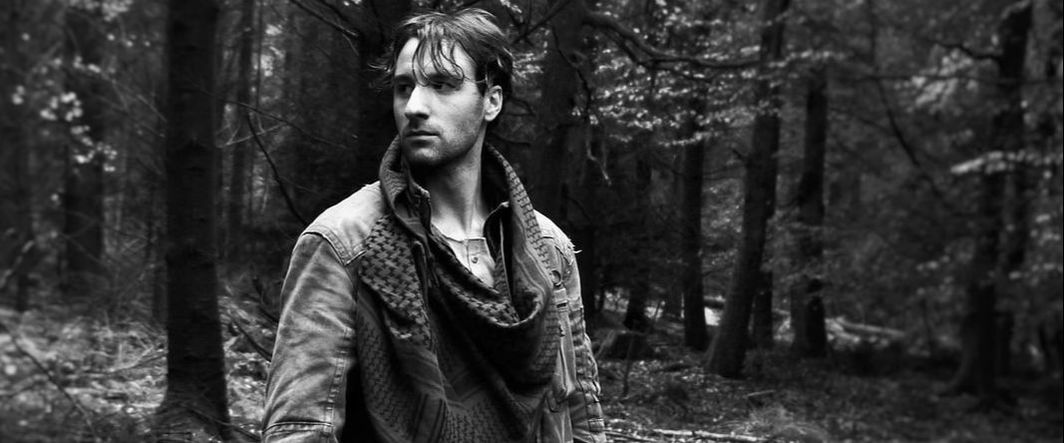
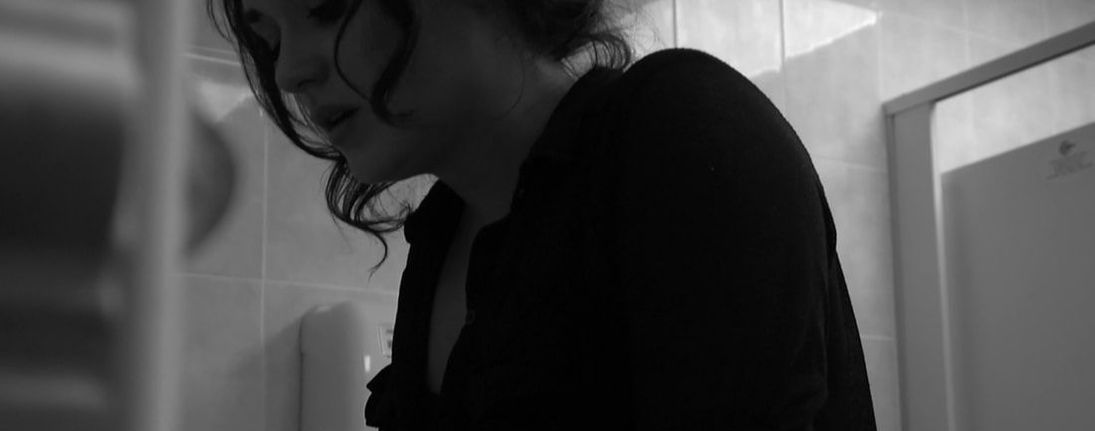
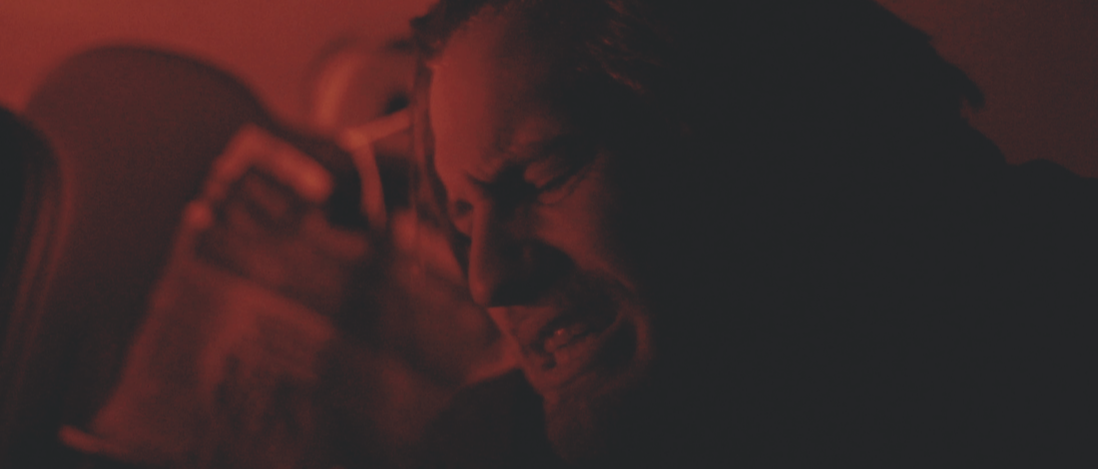
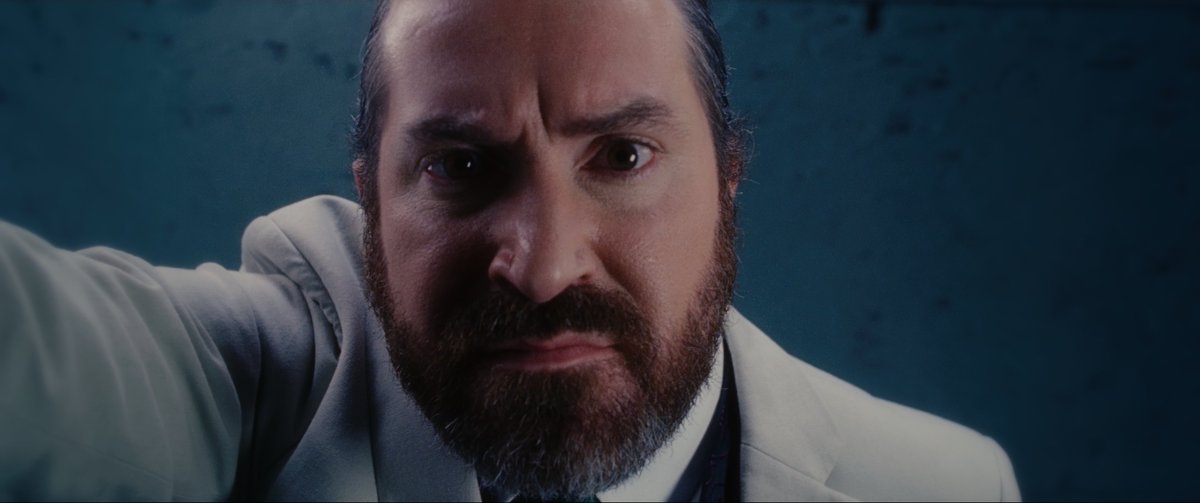
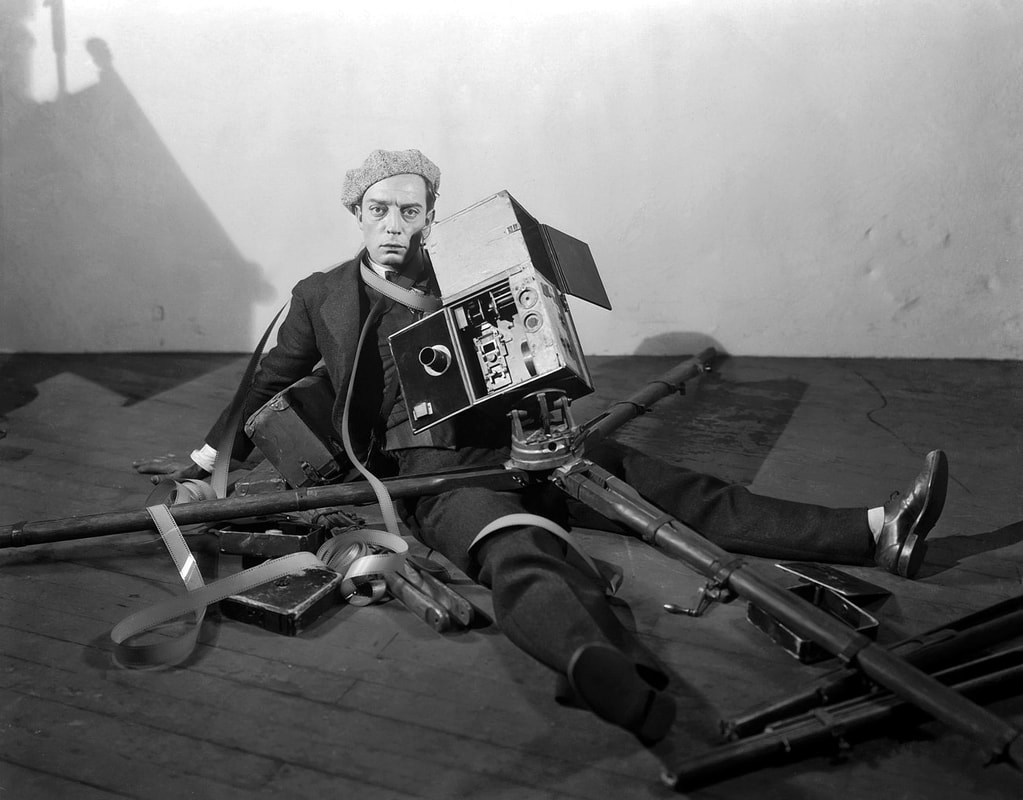
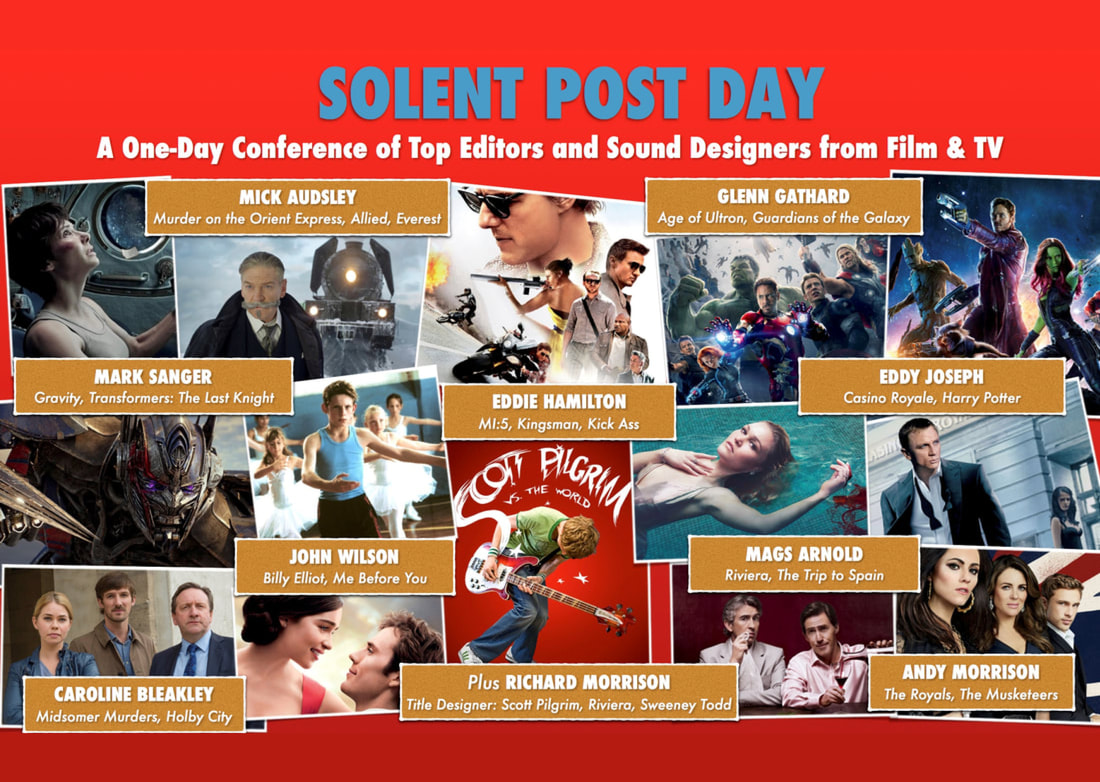
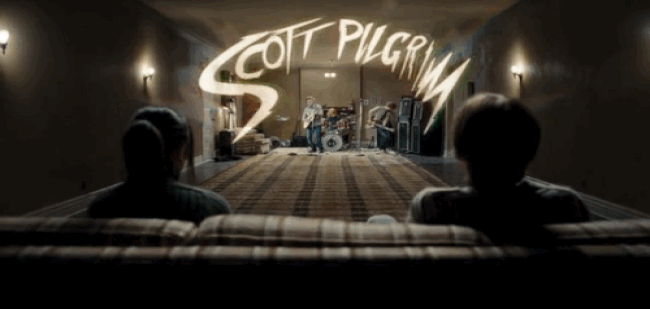
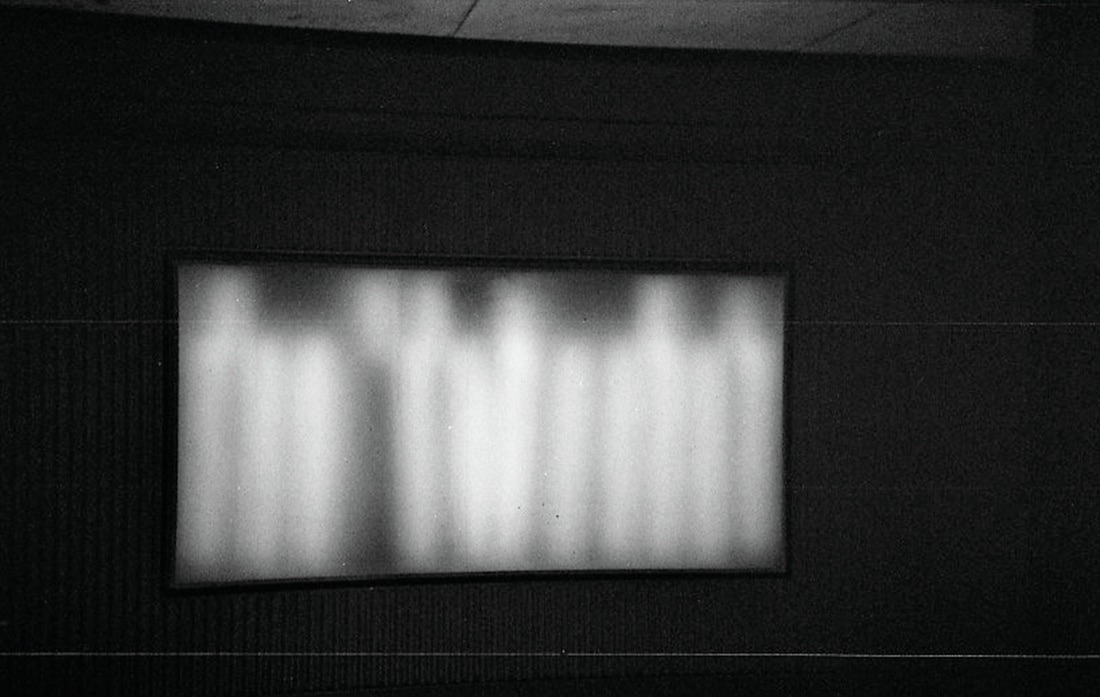
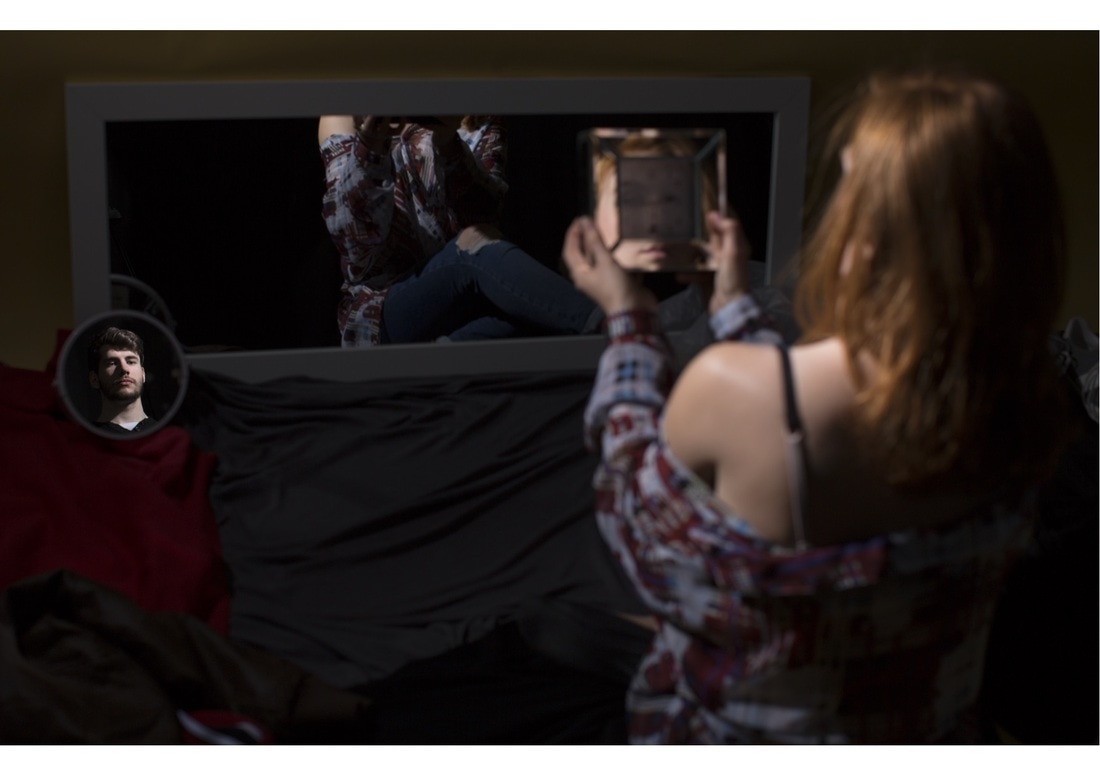
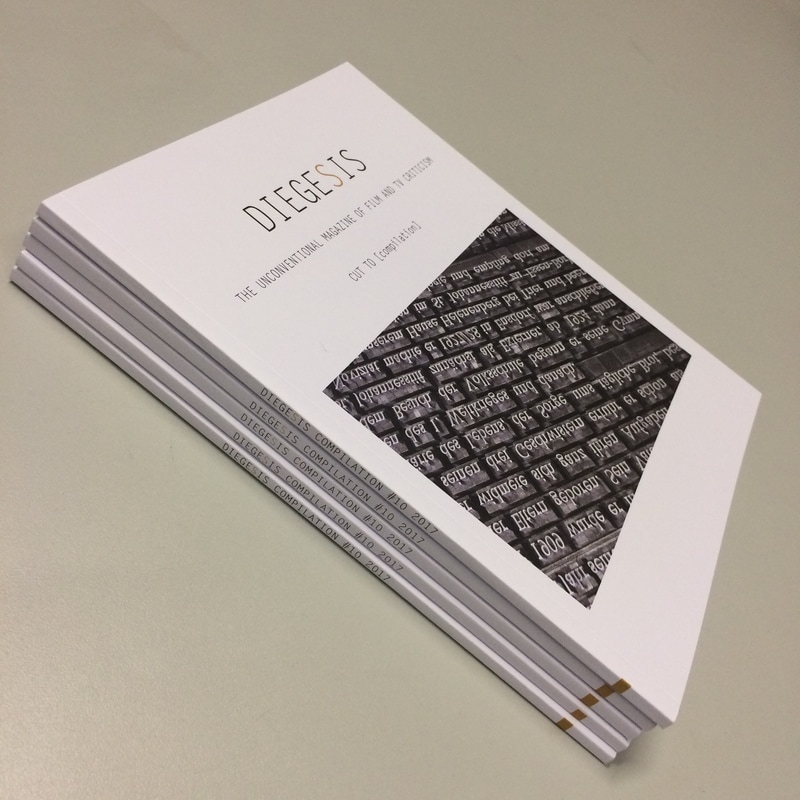
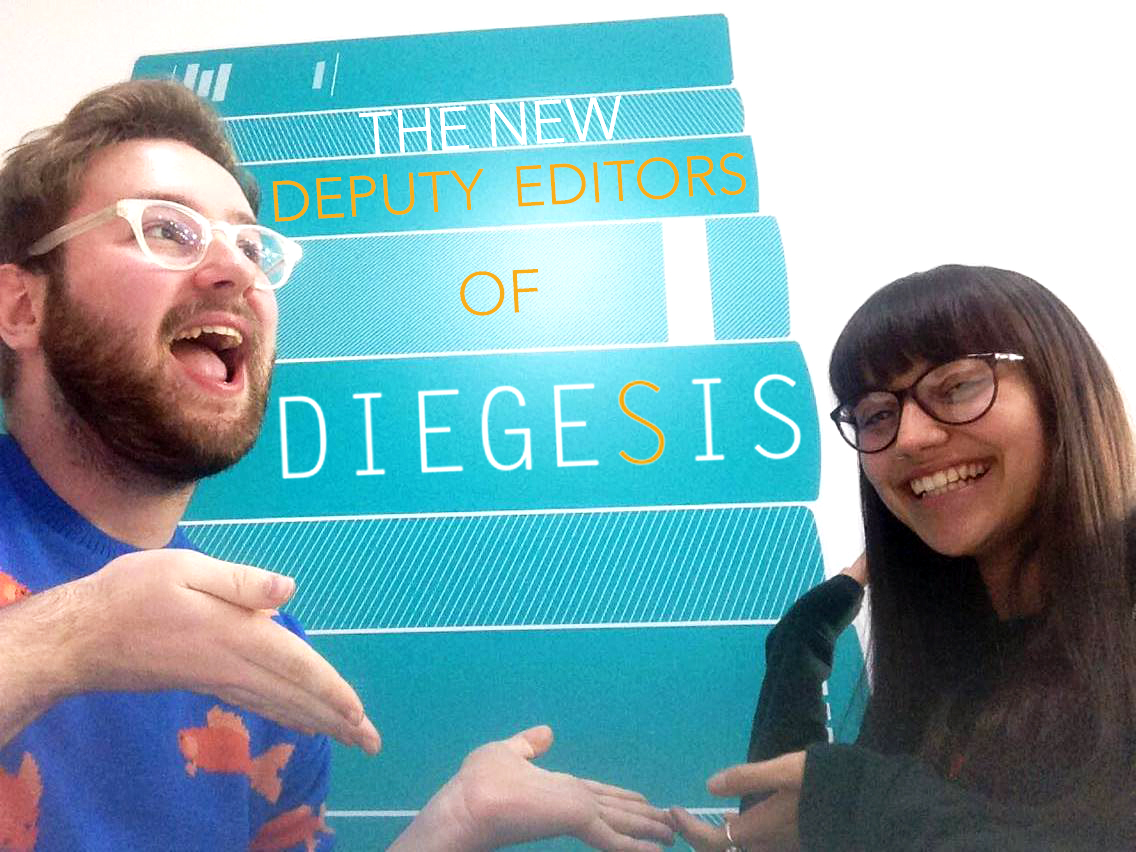
 RSS Feed
RSS Feed
